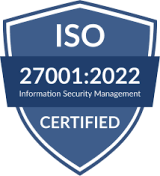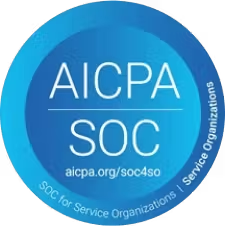Share on:
On June 26, 2025, the Nigerian Government signed the Nigeria Tax Act 2025 into law. This reform has reshaped how individuals and small businesses are taxed.
For many small business owners, the new law isn’t just about new rates or reliefs, but it’s a reminder that you and your business are two separate entities. When your personal and business finances overlap, your tax situation becomes confusing, your records difficult to justify, and your tax audits unnecessarily stressful.
In this article, we’ll break down what this means for you as a small business owner, how to get ready for the new tax environment, and the practical steps you can take to separate your finances, stay compliant, and avoid future headaches.
Why Small Business Owners Should Pay Attention
Nigeria’s tax reforms have a major goal to widen Nigeria’s tax net, bringing more self-employed professionals and small business owners into compliance. For years, entrepreneurs and small business owners have operated informally, often without proper records or registration. The new law is now designed to ensure that individuals who earn income from business activities contribute fairly to government revenue, just like those in formal employment.
This shift means there’ll be greater scrutiny and higher expectations for financial transparency for your business. It’s no longer enough to just track inflows and outflows; the government now expects clear documentation and proper bookkeeping, showing what counts as business income, what qualifies as personal withdrawals, and which expenses are allowable for tax purposes.
Proper record-keeping and structured accounting are no longer optional; they are essential tools for proving compliance and avoiding unnecessary tax exposure or penalties.
Distinction Between Personal and Business Funds.
The government is coming for you! Or maybe not.
Another major aim of the 2025 tax law is to make the tax system fairer and more transparent. Small business owners need to understand that: ”your business is a separate entity from you.” The law treats business income and personal income differently, which means different tax rules apply to your personal earnings and to your business profits.
As an individual, personal income tax laws apply to the salary you earn from your business or any other personal source of income. The law allows you to claim reliefs and deductions, and it exempts you from paying tax on the first ₦800,000 of your annual income. You can read more on this here.
At the same time, the government wants to see your business thrive and that’s why the law focuses on taxing your profits, not total revenue. Your profit in this case is what remains after you’ve deducted all legitimate business expenses from your sales.
To support small business growth, the new law has updated the threshold for full exemption from corporate income tax (CIT). Businesses with an annual sales up to ₦100 million and total fixed assets not exceeding ₦250 million are now classified as “small companies” and are exempt from these taxes. Previously, the threshold was around ₦25 million in sales.
Similarly, businesses are mandated to collect Value Added taxes from their customers on behalf of the government. In practice, this will be an increase of 7.5 percent in the price you quote to your customers for your products. Currently, the threshold for collecting value added taxes is ₦25 million in annual sales. That number will now be ₦50 million under the new law.
This change provides much-needed relief for your business, allowing it to remain more price-competitive, since they can sell their products without adding the extra 7.5% VAT. A cost larger businesses must now factor into their pricing.
Final Thoughts
By clearly separating your personal income from your business finances and understanding how each is taxed, you not only stay compliant but also build a stronger foundation for growth. Remember, keeping your business and personal funds apart isn’t just good accounting practice; it’s now a requirement for staying on the right side of the law.
A way to get your books in order is to use an accounting software built to suit your peculiarity. Using TYMS as your accounting software makes this process easier. From tracking income and expenses to generating financial statements and filing tax reports, TYMS helps you stay organized, compliant, and confident about your numbers. Whether you’re a freelancer, startup, or growing business, TYMS gives you the clarity you need to make informed decisions and manage your finances like a pro. Try tyms today.


Blessing Obiora
3 mins read


Chineye Ochem
3 mins read


